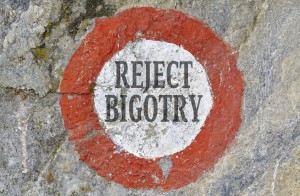 When I was a pre-pubescent child in the 1960s, I played with toy guns, GI-Joes and Legos of which I made trucks and space ships, but I also played with little plastic babies and Legos from which I made them houses. At 12 every day I played handball at lunch with my male friends, but I also had to be taught by my older brother not to carry my books up at my chest and walk from my hips like girls at my junior high did.
When I was a pre-pubescent child in the 1960s, I played with toy guns, GI-Joes and Legos of which I made trucks and space ships, but I also played with little plastic babies and Legos from which I made them houses. At 12 every day I played handball at lunch with my male friends, but I also had to be taught by my older brother not to carry my books up at my chest and walk from my hips like girls at my junior high did.
These days, I wear pink tinted glasses, and a lot of violet clothing, and have my nails done twice a month. I also go fishing once a week and spent 20-years in the military.
By my behavior throughout my life, can one judge whether I’m male or female?
Journalist and filmmaker Elinor Burkett, believes trans women, as a class of people, have defined themselves by behavior. We are a “they” in a we/they distinction, and women (read “cis women”) are the “we.” Burkett winced when Caitlyn Jenner said to Diane Sawyer in that recent ABC interview, “My brain is much more female than it is male,” as well as when Chelsea Manning tweeted, “I am so much more aware of my emotions; much more sensitive emotionally (and physically).” These conform to female stereotypes, and Burkett doesn’t approve.
“People who haven’t lived their whole lives as women, whether Ms. Jenner or Mr. Summers [note: a Harvard scientist who showed differences between male and female brains], shouldn’t get to define us,” Burkett wrote in a New York Times op-ed What Makes a Woman? “That’s something men have been doing for much too long.”
Then Burkett lumped trans women into a class of people, and literally called us they. “Their truth is not my truth. Their female identities are not my female identity. They haven’t traveled through the world as women and been shaped by all that this entails. They haven’t suffered through business meetings with men talking to their breasts or woken up after sex terrified they’d forgotten to take their birth control pills the day before. They haven’t had to cope with the onset of their periods in the middle of a crowded subway, the humiliation of discovering that their male work partners’ checks were far larger than theirs, or the fear of being too weak to ward off rapists.”
Then Burkett later uses us, a variant of we, to take on the mantle of all women. “The ‘I was born in the wrong body’ rhetoric favored by other trans people doesn’t work any better and is just as offensive, reducing us to our collective breasts and vaginas.”
I know I don’t say “I was born in the wrong body.” It’s my body. I know many activists take the same tact I do – It’s our bodies, so how could they be the wrong ones? Genderdyphoria related to our bodies, for many of us it has meant wanting to change our bodies.
By coincidence, Burkett’s op-ed came out in the same week Major Jamie Henry Lee, M.D., announced in Buzzfeed she transitioned in the Army. She changed her name and gender marker while on active duty. This is obviously not about “the chance to wear nail polish” as Burkett describes the trans female experience.
We live in a world of sex and gender constraints that trans people didn’t create, and a number of trans people actively work at tearing down. And a different number of trans people hate that because they like the gender binary and societal sex and gender roles, and are transitioning to fit into these. Trans women are a diverse bunch: we have trans women who are butch and femme, every race and religious creed, every sexuality – at every intersection that cis women find themselves as well. We are not Burkett’s they.
Elinor Burkett likely doesn’t consider herself a bigot, but the kind of we/they distinction she used to make her point is bigotry that’s called transphobia. The Times wouldn’t have published a piece where the we/they distinctions were “blacks are like that, but we are like this,” “Muslims are like that, but we are like this,” or especially “women are like that, but we are like this,” but the Times was comfortable publishing a piece which communicated “we are like this, and trans women are like that.” And that’s wrong.











